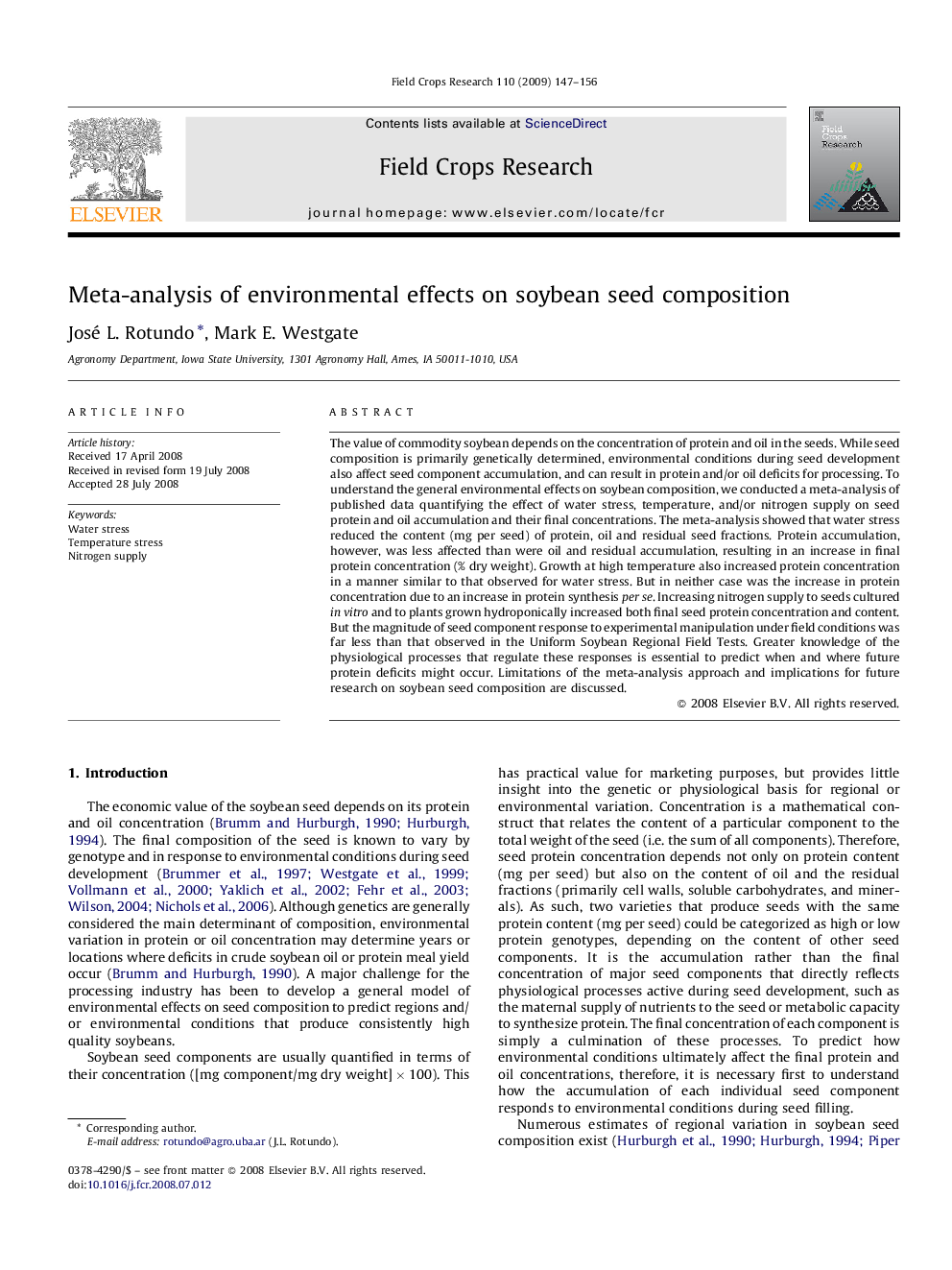| Article ID | Journal | Published Year | Pages | File Type |
|---|---|---|---|---|
| 4511328 | Field Crops Research | 2009 | 10 Pages |
The value of commodity soybean depends on the concentration of protein and oil in the seeds. While seed composition is primarily genetically determined, environmental conditions during seed development also affect seed component accumulation, and can result in protein and/or oil deficits for processing. To understand the general environmental effects on soybean composition, we conducted a meta-analysis of published data quantifying the effect of water stress, temperature, and/or nitrogen supply on seed protein and oil accumulation and their final concentrations. The meta-analysis showed that water stress reduced the content (mg per seed) of protein, oil and residual seed fractions. Protein accumulation, however, was less affected than were oil and residual accumulation, resulting in an increase in final protein concentration (% dry weight). Growth at high temperature also increased protein concentration in a manner similar to that observed for water stress. But in neither case was the increase in protein concentration due to an increase in protein synthesis per se. Increasing nitrogen supply to seeds cultured in vitro and to plants grown hydroponically increased both final seed protein concentration and content. But the magnitude of seed component response to experimental manipulation under field conditions was far less than that observed in the Uniform Soybean Regional Field Tests. Greater knowledge of the physiological processes that regulate these responses is essential to predict when and where future protein deficits might occur. Limitations of the meta-analysis approach and implications for future research on soybean seed composition are discussed.
